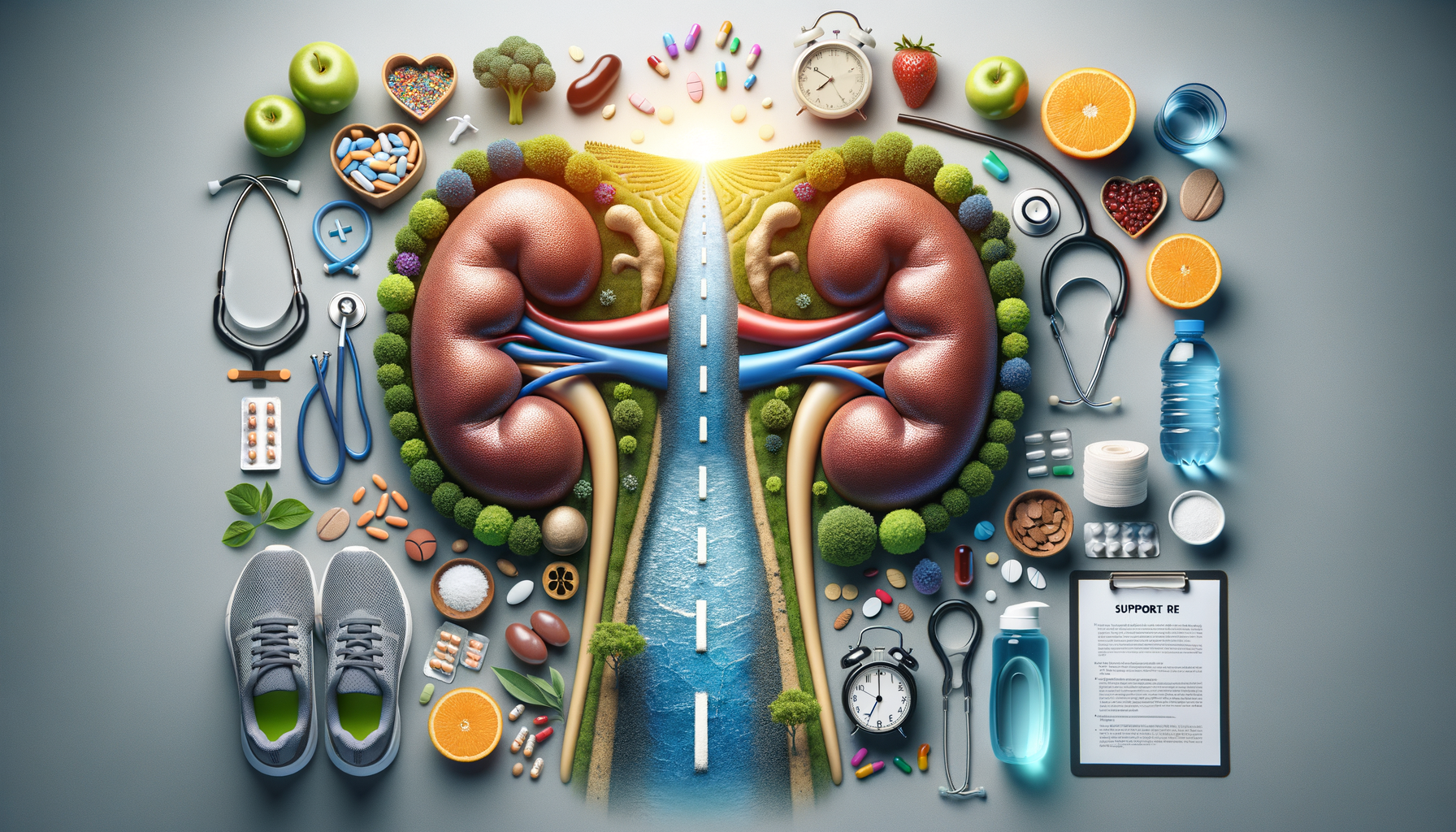Understanding Kidney Health
Kidneys play a crucial role in maintaining overall health by filtering waste and excess fluids from the blood, balancing electrolytes, and regulating blood pressure. However, they are often overlooked until a problem arises. Understanding kidney health is pivotal for preventing kidney disease, which can lead to severe health complications if not managed properly. According to the National Kidney Foundation, 10% of the global population is affected by chronic kidney disease (CKD), underscoring the need for awareness and proactive management.
The kidneys are delicate organs that can be damaged by various factors, including high blood pressure, diabetes, and an unhealthy lifestyle. When the kidneys are not functioning optimally, waste products and fluids can accumulate in the body, leading to swelling, fatigue, and other symptoms. Early detection and management are key to preventing the progression of kidney disease.
Maintaining kidney health involves understanding the risk factors, recognizing symptoms early, and making informed lifestyle choices. Regular check-ups and screenings can help detect issues before they escalate, allowing for timely intervention. By prioritizing kidney health, individuals can enhance their quality of life and reduce the risk of complications.
Dietary Adjustments for Kidney Health
Diet plays a fundamental role in supporting kidney health. A balanced diet can help prevent kidney damage and manage existing conditions. It’s essential to consume foods that are low in sodium, phosphorus, and potassium, as these minerals can be challenging for compromised kidneys to process.
Here are some dietary adjustments that can support kidney health:
- Limit sodium intake: Excessive sodium can increase blood pressure, putting strain on the kidneys. Opt for fresh foods and avoid processed items high in salt.
- Control protein consumption: While protein is necessary for health, too much can burden the kidneys. Choose high-quality proteins such as fish, poultry, and plant-based options.
- Monitor phosphorus levels: High phosphorus can weaken bones and damage blood vessels. Limit dairy products and opt for alternatives like almond milk.
- Regulate potassium intake: Potassium helps nerves and muscles function, but too much can be harmful. Be mindful of high-potassium foods like bananas and oranges.
Consulting a healthcare professional or a dietitian can provide personalized dietary recommendations tailored to individual needs and conditions. By making conscious dietary choices, individuals can significantly impact their kidney health and overall well-being.
Exercise and Physical Activity
Regular physical activity is crucial for maintaining kidney health and preventing disease. Exercise helps regulate blood pressure, manage weight, and improve cardiovascular health, all of which are beneficial for the kidneys. Engaging in consistent physical activity can also enhance mood and energy levels, contributing to a healthier lifestyle.
For those new to exercise, starting with moderate activities such as walking, swimming, or cycling can be effective. Aim for at least 150 minutes of moderate-intensity exercise per week, as recommended by health organizations. Gradually increasing the intensity and duration of workouts can lead to even greater health benefits.
It’s important to listen to your body and avoid overexertion, especially if you have existing health conditions. Consulting with a healthcare provider before starting a new exercise regimen is advisable, particularly for individuals with kidney disease or related health issues. By incorporating regular exercise into daily routines, individuals can support their kidney health and enhance their quality of life.
Managing Stress and Mental Well-being
Stress management is an often-overlooked aspect of kidney health. Chronic stress can lead to high blood pressure and other health issues that strain the kidneys. Therefore, finding effective ways to manage stress is essential for maintaining kidney function and overall health.
Here are some strategies for managing stress:
- Practice mindfulness and meditation: These techniques can reduce stress and promote relaxation.
- Engage in hobbies: Activities that bring joy and relaxation can help alleviate stress.
- Connect with others: Building a support network of friends and family can provide emotional support and reduce feelings of isolation.
- Seek professional help: Therapy or counseling can offer guidance and coping strategies for managing stress.
By prioritizing mental well-being and stress management, individuals can support their kidney health and improve their overall quality of life. Incorporating stress-reducing activities into daily routines can lead to long-term health benefits and a more balanced lifestyle.
Support Options for Kidney Health
In addition to lifestyle changes, various support options are available for managing kidney health. These resources can provide guidance, education, and assistance for individuals at risk or living with kidney disease.
Healthcare professionals, including nephrologists, dietitians, and nurses, play a vital role in supporting kidney health. Regular check-ups and screenings can help monitor kidney function and detect issues early. Personalized care plans can be developed to address individual needs and conditions.
Support groups and community organizations offer valuable resources and a sense of community for individuals managing kidney health. These groups provide a platform for sharing experiences, advice, and encouragement. Online forums and social media communities can also connect individuals with similar experiences and provide a wealth of information.
Educational resources, such as workshops, seminars, and online courses, can empower individuals to take control of their kidney health. These resources cover a range of topics, from dietary advice to managing stress and understanding medical treatments.
By utilizing available support options, individuals can better manage their kidney health and improve their quality of life. Accessing resources and building a support network can provide the knowledge and encouragement needed to make informed decisions and maintain a healthy lifestyle.




Leave a Reply